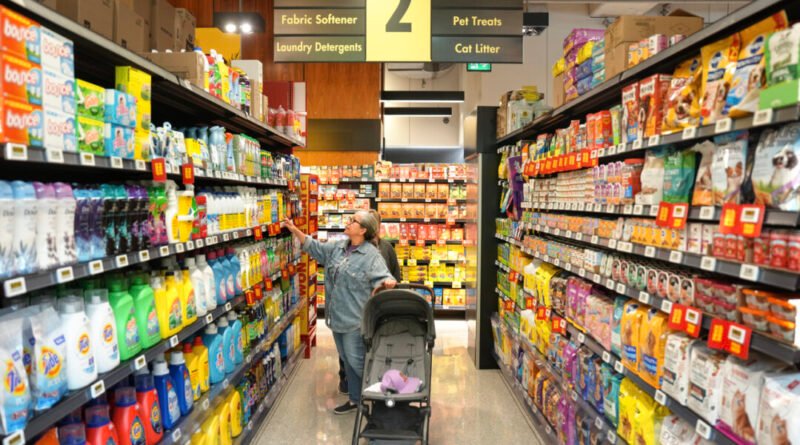Can Grocery Stores Successfully Implement Consumer-Based Altruism? Interview with Sylvain Charlebois
Commentary
Exploring consumer-based philanthropy at the grocery store level intrigues economists and social entrepreneurs. Relying on consumers’ generosity to aid those in need while sustaining a grocery store raises crucial questions.
But can this approach thrive in reality?
An innovative experiment unfolds in Montreal with the launch of 3 Paniers, an independent grocery store. Offering three pricing options: the “Solidarity Price” to make groceries more affordable for those with tight budgets, the “Suggested Price” for financial sustainability, and the “Pay-it-Forward Price” to subsidize the Solidarity Price, promoting social equity.
The question lingers on whether consumers will embrace the Pay-it-Forward option. While optimism exists, the practicality may differ. Consumers manage food budgets diversely, making the sustainability of stores like 3 Paniers uncertain.
A similar concept was tested at The Anarchist, an “anti-capitalist” café in Toronto, operating on a “pay what you can” model, yet it closed after a short stint. Nonetheless, the idea persists with new initiatives like the Pay-What-You-Can food market in Kitchener striving to enhance food accessibility.
Altruism finds better traction in food banks and food-rescue organizations like Second Harvest. Yet, blending diverse socio-economic groups in one grocery store remains challenging. The vision of affluent customers aiding the less fortunate in real-time, in the same shopping environment, is the goal of such initiatives. Though they may create inclusive spaces bridging economic disparities, long-term sustainability poses a hurdle. People often hesitate to overpay for groceries to support others due to their self-interest.
Despite criticisms, major grocers like Loblaw, Sobeys, Metro, Costco, and Walmart Canada significantly contribute to food banks and food-rescue agencies. For instance, Metro donated over $60 million to food banks last year. These profitable companies play a vital role in supporting those in need through various initiatives.
Smaller social enterprises unite communities by engaging volunteers and instilling collective responsibility. While the value of these efforts is undeniable, ensuring their sustainability remains a significant challenge.
Empowering consumers to choose their price is an intriguing concept. It’s unfortunate we can’t apply the same flexibility to our income taxes.
Views expressed in this article are opinions of the author and do not necessarily reflect the views of The Epoch Times.






